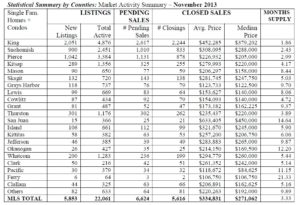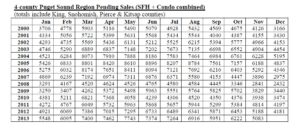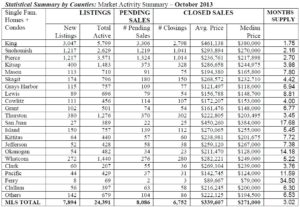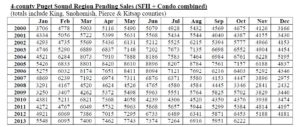Here you will find the main steps in the home selling process with detailed topics outlined to provide you with additional information on each step. If you prefer, we are happy to meet with you and go over each and every step in the process in person. Just contact us.
Selling your home is a very important event. If you’ve decided to sell, then you no doubt have some specific goals in mind. Those goals may be different for each seller, however, the process of selling your home is similar. That process, while straightforward, is not necessarily easy and can be frustrating at times. Become familiar with the process of selling your home and you may even enjoy it as you see your goals being met.
If you are involved in a short sale, pre-foreclosure or other other type of sale you may want to check our topics on those subjects.
The following are the steps in selling your home:
Form your real estate sales team: You will need help when selling your home. That does not necessarily mean the help of a real estate agent. At a minimum, you should consult a real estate attorney. You will also want to talk to a title company, an escrow company and other service providers to help you with the various steps. Other service provides can include, along with a real estate agent: a handyman to perform repairs, a photographer to take pictures and a print designer to help create flyers.
Prepare your home for sale: Most people have a goal of maximizing the price for their home while at the same time minimizing the time it takes to sell. The most important factor in this step of the process is pricing. A close second is making sure your home is aesthetically pleasing to potential buyers. Exactly how to prepare your home will vary depending on your home’s style, neighborhood and direct competition.
Price your home to meet your goals: Correctly pricing your home is the most important thing you can do to ensure that it will sell. It is even more important when the goal includes selling it quickly. In order to correctly price your home, you must understand how it compares to similar homes which have sold in your market recently and the price for competing properties in your market. You also need to understand other market factors that have a direct affect on your pricing.
Market your home to get offers: To sell your home you need to get offers. To get offers, you need to market your home. Preferably, you will market your home to the widest audience possible. More importantly, you need to market your property to the correct audience.
Review and negotiate offers: Assuming you have prepared and priced your home correctly and you’ve done a good job of marketing, you will receive offers. When you receive offers it is important to review the details. You will also want to negotiate any offers to ensure that you are getting the best possible terms, and that you are meeting your goals.
Follow up on buyer due diligence: Once you have accepted an offer, the work doesn’t end. The buyer will typically have several contingencies. You need to follow up with the buyer during the due diligence process. They will likely need to inspect the property and have an appraisal performed. They also need to complete their loan paperwork so that the transaction can close on time. Review the contract and list all the important dates on a calendar so you know if these buyer due diligence tasks are falling behind.
Get ready to move: While the buyer is getting ready to move in, you’ll need to get ready to move out. You will need to make sure you have a new place to live and make sure to pack all of your belongings. And, as a seller, you will need to keep your property maintained in the same state as when the buyer put in their offer.
Close the sale: The closing process is much easier for sellers than for buyers. For one thing, you have far less paperwork to sign. You will want to review the HUD closing statement to make sure you are paying your fair share, and only your fair share, of closing costs. You will need to provide the escrow agent with your lenders’ contact information so they will receive proper instructions for paying off any loans. The escrow agent will need to know how you wish to be paid (check or wire transfer to your bank).

 On the surface, this seems easy and the obvious scenario is one where a person selling a house ‘for sale by owner’ (FSBO) finds a buyer. No real estate agent is involved, so there is no agency relationship. But, we’ve also seen cases where a FSBO owner or buyer asks a real estate agent to handle paperwork for a fee, without creating an agency relationship. The challenge here is that the agent will likely, at some point in the transaction, offer advice to either the seller or buyer, thereby creating an agency relationship without meaning to do so. As the owner of a real estate brokerage, I see this as a recipe for law suits, and since ultimately it is my responsibility, I don’t want my brokers doing this. If a FSBO buyer and seller needs help with paperwork, they can contact an escrow company or an attorney to guide them through the process.
On the surface, this seems easy and the obvious scenario is one where a person selling a house ‘for sale by owner’ (FSBO) finds a buyer. No real estate agent is involved, so there is no agency relationship. But, we’ve also seen cases where a FSBO owner or buyer asks a real estate agent to handle paperwork for a fee, without creating an agency relationship. The challenge here is that the agent will likely, at some point in the transaction, offer advice to either the seller or buyer, thereby creating an agency relationship without meaning to do so. As the owner of a real estate brokerage, I see this as a recipe for law suits, and since ultimately it is my responsibility, I don’t want my brokers doing this. If a FSBO buyer and seller needs help with paperwork, they can contact an escrow company or an attorney to guide them through the process.







